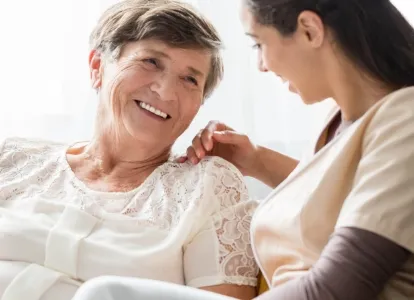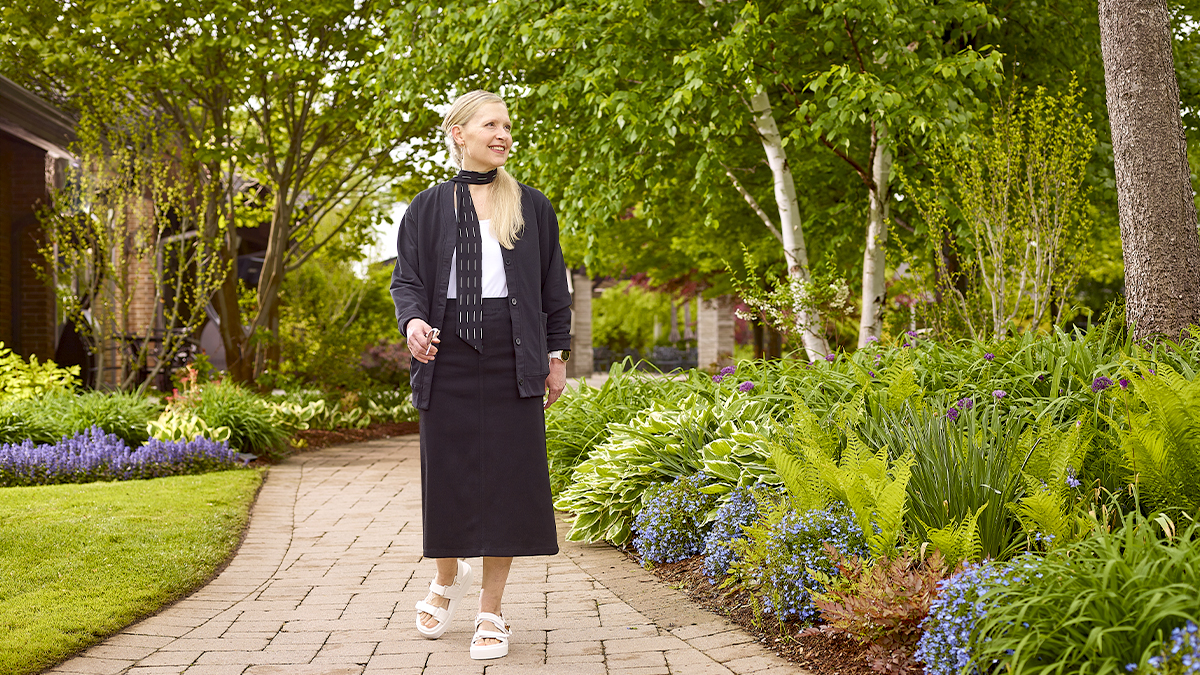Essential Heat and Summer Safety Tips for Seniors
Summer’s warmth brings joy, but for seniors, soaring temperatures can also bring real challenges. Heat exhaustion, dehydration, and skin damage become serious risks when the mercury rises. That’s why having a smart, structured approach to summer safety is essential for keeping seniors comfortable, healthy, and protected.
The key? Staying cool, hydrated, and shielded from the sun’s harsh rays throughout the day. Simple habits like drinking plenty of water, avoiding peak sun hours, and wearing the right clothing make all the difference.
That’s where Silverts steps in. Our adaptive clothing line is thoughtfully designed to support seniors in hot weather. We use breathable fabrics and easy-wear styles that keep the body cool and comfortable without sacrificing dignity or independence.
This summer, don’t let the heat slow you down. With the right care and adaptive apparel, seniors can enjoy every sunny day safely and comfortably.
Why Hot Weather Can Be Bad for Older Adults
Heat Exhaustion and Heat Stroke
As we age, our bodies don’t regulate body temperature as efficiently as they used to. This means older adults are more vulnerable to heat-related illnesses like heat exhaustion and heat stroke. These conditions can develop quickly and become serious if not recognized early.
Watch out for symptoms such as dizziness, confusion, excessive sweating, and fatigue. If you or a loved one experiences these signs of heat exhaustion, it’s crucial to act fast—move to a cooler place, hydrate, and seek medical attention if necessary.
Understanding these risks helps us take the right precautions to stay safe and enjoy summer to the fullest.
Dehydration
One of the biggest challenges older people face in the summer is a reduced sense of thirst. This means they might not realize they need to drink more fluids, putting them at greater risk of dehydration, a condition that becomes more common with extreme heat waves and high humidity.
Dehydration can sneak up with symptoms like dry mouth, dizziness, and confusion. These signs that shouldn’t be ignored. Encouraging regular water intake, even when not feeling thirsty, is key to staying healthy during hot days.
Pairing good hydration habits with lightweight, breathable clothing can make a world of difference in keeping older adults comfortable and safe all summer long.
Sunburns and Skin Damage
As we age, our skin naturally becomes thinner and more fragile, making older individuals especially vulnerable to sunburn and harmful UV damage. Prolonged sun exposure doesn’t just cause discomfort, it raises the risk of skin cancer and accelerates premature aging.
That’s why sun safety should be a top priority. Wearing protective clothing, applying broad-spectrum sunscreen, and seeking shade during peak hours are simple yet powerful ways to guard delicate skin while enjoying the summer sun, particularly as temperature or climate change intensifies sun exposure risks.
6 Summer Safety Tips for Seniors to Stay Cool
1. Stay Hydrated
Staying hydrated is one of the easiest and most important ways for seniors to stay safe in the heat. But with age, the body’s thirst signals can weaken, making it easy to forget to drink enough water.
The rule of thumb? Sip throughout the day, not just when you feel thirsty. Be especially mindful to hydrate before, during, and after any physical activity, even a short walk outside can increase your fluid needs.
Also, steer clear of drinks that can actually worsen dehydration. Beverages high in caffeine, sugar, or alcohol may be refreshing in the moment, but can pull more water from your system.
Water, herbal teas, and electrolyte-rich drinks are great choices to keep the body balanced and the energy flowing all summer long.
2. Use Fans and Air Conditioning
Heat waves can turn homes into ovens, making cooling methods essential. Seniors should aim to keep their living space cool during the hottest parts of the day, typically between 11 a.m. and 4 p.m. Use fans or air conditioning to maintain a comfortable indoor temperature. Close blinds or curtains to block direct sunlight, and limit activities that generate heat, like cooking on the stove.
If air conditioning isn’t available at home, plan visits to public spaces such as shopping malls, libraries, or community centers. These spots not only offer a break from the heat but can also provide social interaction and a refreshing change of scenery.
3. Apply Sunscreen
Sunscreen isn’t just for beach days; it’s a daily essential, especially for older individuals with more delicate skin. A high-SPF, broad-spectrum sunscreen protects against both UVA and UVB rays, helping to prevent sunburn, skin damage, and long-term health risks like skin cancer.
Apply sunscreen generously to all exposed skin at least 15 minutes before going outdoors. And remember: one application isn’t enough. Reapply every two hours to ensure consistent protection throughout the day.
Pairing sunscreen with sun-protective clothing and a wide-brimmed hat offers even better defense when heading out in the heat.
4. Avoid Peak Sun Hours
When it comes to summer heat safety, timing is everything. Seniors should avoid being outdoors during peak sun hours — typically between 10 a.m. and 4 p.m. — when the sun’s rays are at their strongest and the risk of heat-related illness is highest.
Instead, plan outdoor activities like gardening, walking, or errands in the early morning or late evening when temperatures are cooler and UV exposure is less intense. Not only is it safer, but it also makes being outdoors more enjoyable.
A little planning can go a long way in helping seniors stay active without overheating.
5. Monitor Medications
Some medications can increase heat and sun sensitivity. Common prescriptions for blood pressure, heart conditions, and even allergies can reduce the body’s ability to sweat or make skin more vulnerable to sunburn.
If you or a loved one is taking medication, be mindful of any warning labels related to sun or heat exposure. Consult with your healthcare provider or pharmacist to understand how your prescriptions may interact with hot weather.
Being informed helps prevent complications and ensures older adults stay safe and comfortable, no matter the forecast.
6. Recognize Heat-Related Symptoms
Awareness is key to preventing heat-related illness. Be alert for early signs of trouble, such as dizziness, weakness, muscle cramps, nausea, or confusion.
If you or a loved one begins to experience any of these symptoms, act quickly:
- Move to a shaded or air-conditioned space
- Drink cool water or an electrolyte drink
- Rest and monitor symptoms closely
- Don’t hesitate to seek medical attention if symptoms worsen or don’t improve
Prompt action can prevent a minor issue from turning into a serious emergency — and help keep summer safe and enjoyable.
How to Dress Seniors for Summer Heat
Dress for the weather! What you wear in the summer matters, especially for seniors. Lightweight, breathable fabrics like cotton, linen, and bamboo are ideal for hot days. These natural materials allow air to circulate and wick away moisture, helping the body stay cool and dry.
Loose-fitting clothing is also essential. It promotes better airflow and reduces the buildup of heat, especially when paired with lighter colors that reflect rather than absorb sunlight. On the flip side, synthetic fabrics can trap heat and moisture, leading to discomfort and overheating — best to avoid them during warmer months.
For seniors who need assistance with dressing, Silverts’ adaptive clothing makes staying cool even easier. Styles with magnetic closures, wide openings, and stretchy fabrics simplify dressing while offering breathable comfort and freedom of movement.
To take protection a step further, opt for UV-protective clothing that shields skin from harmful rays without the need for constant sunscreen reapplication. And don’t forget sun-safe accessories like wide-brimmed hats or visors. These are small additions that make a big difference! Adaptive swimwear is also a smart addition for summer days by the pool or beach, offering both comfort and dignity with easy-on features and quick-dry materials designed specifically for older adults.
Keeping Seniors Safe and Comfortable in Summer Heat
Summer safety for seniors comes down to three key pillars: hydration, sun protection, and cooling strategies. Drinking water regularly, avoiding peak sun hours, dressing in breathable fabrics, and staying in cool environments are all essential steps in preventing heat-related illness.
Silverts’ lightweight clothing is designed with these needs in mind: combining comfort, ease of dressing, and breathable, protective materials that help older individuals stay cool while maintaining their independence and dignity.
Whether you’re a caregiver, family member, or senior yourself, now is the time to implement these simple but powerful habits. With the right care and adaptive apparel, older adults can stay safe, stylish, and comfortable all summer long.





No Comments